These are the helpful conversations about religion we need
This article originally appeared at Baptist News Global on September 15, 2025.
The assassination of Charlie Kirk at Utah Valley University is undoubtedly going to lead to a lot of conversation about our identity as a nation, the nature of our problems and how we pursue justice.
One of the contexts for these conversations is college campuses. As Mara Richards Bim reported earlier this year, Charlie Kirk and Turning Point USA grew in popularity due to hosting public debates on college campuses that included guest appearances by “alt-right neo-Nazis like Milo Yiannopoulos” and led to “massive (and sometimes violent) protests.”
The evening before Kirk’s assassination in Utah, I attended a different event about politics and religion at Clemson University’s Department of Philosophy and Religion that featured sociologist Samuel Perry speaking on the topic “What is Religion Now? And Why Does It Still Matter?”
Even though the two events each focused on religion and politics, they could not have been more different. Kirk’s event was outdoors with all the excitement that comes from the clashing of a political rally, while Perry’s event was in a classroom as students and faculty sat quietly to learn. Kirk’s event included cheers as he debated about transgender mass shooters, while Perry’s event included the quiet reflection of nodding heads as he explained the results of peer-reviewed research projects.
Then there’s the contrast between Kirk, who never attended college, and Perry who is one of the leading sociologists of our day.
What happened to Kirk was a tragedy. Despite our differences, he was a human being who deserved to be valued and loved. There is no excuse for violence against anyone, including Kirk. We need to have space to grieve and be angry.
Perry posted on Bluesky after Kirk’s death: “Your condemnations of political violence don’t mean a damn thing when you only apply them to victims on your team. Having real principles means you unequivocally condemn political violence as anti-democratic and immoral even against villains. Kirk is dead. This is abhorrent. I condemn this completely.”
We also need to reflect on how to have healthier dialogue at college campuses. And Samuel Perry’s event last Tuesday evening at Clemson University was an excellent example of the kinds of conversations we need to have moving forward.
How religion works in our lives
Like Kirk, Perry identifies as a Protestant Christian, comfortably mentioning it throughout his presentation, which was largely centered around his book Religion for Realists: Why We All Need the Scientific Study of Religion. As Perry put it, his interest in discussing religion publicly is to explore “how it works in our lives.”
Perry began by noting the similarity between his book title and another book called Democracy for Realists.
“We tend to approach democracy as if it was people making rational choices on the basis of information they gather and voting in light of those decisions.”
“We tend to approach democracy as if it was people making rational choices on the basis of information they gather and voting in light of those decisions and electing their representatives on the basis of information,” Perry said. But Perry added the book by Christopher Achen and Larry Bartels demonstrates how people actually make decisions — more “on the basis of vibes, on the basis of identity and fear and anger and the kinds of messages that they get.”
Religion, Perry argues, functions much in the same way.
Misconceptions about how religion works
One of the most fundamental problems going on is the disconnect between how we assume religion forms us and how religion actually forms us.
As Perry mentioned, most Anglo-Protestants assume: “You have a set of convictions or commitments to a body of ideas or doctrines and the primary change agent is obedience or individuals acting in obedience.” To these Christians, Perry says, “You have people who believe faithfully in certain doctrines and ideas, and we change the world one person at a time.”
But this is not how religion works.
Rather than primarily being rooted in beliefs, Perry shows how our religious and political reality flows from group identity. Or as Perry puts it, “We are belongers before we are believers.”
Projecting onto God othering the ‘ill-shaped’
Perry noted how the 17th-century philosopher Baruch Spinoza used the illustration of a circle claiming God is circular or a triangle claiming God is triangular. “Each would ascribe to God its own attributes, would assume itself to be like God, and look on everything else as ill-shaped,” Spinoza argued.

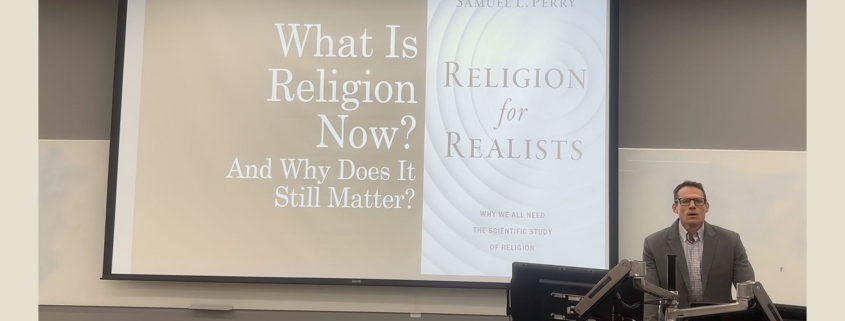
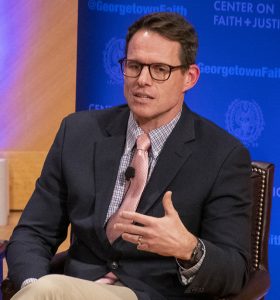



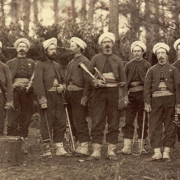

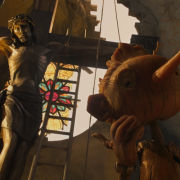

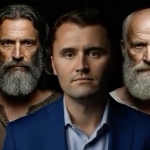
Leave a Reply
Want to join the discussion?Feel free to contribute!